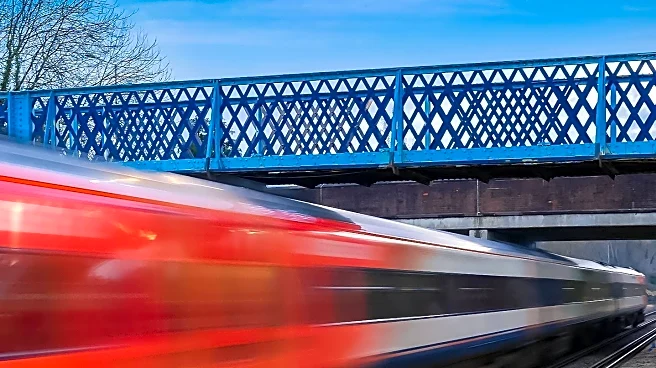What's Happening?
A train service on the Docklands Light Railway (DLR) in London experienced an unusual delay due to a swan on the tracks near West India Quay station. The incident was captured in a viral TikTok video, showing the swan calmly waddling ahead of the train, which was forced to slow down. Transport for London (TfL) confirmed the event and apologized to passengers for the disruption. Specially trained staff were deployed to safely rescue the swan and return it to a nearby quay. Swans are known to be disruptive to rail operations in the UK, and they are among the most legally protected birds in the country.
Why It's Important?
The incident highlights the challenges faced by urban transport systems in dealing with wildlife disruptions. Swans, being legally protected and symbolically significant in the UK, require careful handling, which can lead to operational delays. This event underscores the importance of animal welfare in public transport policies and the need for contingency plans to address such occurrences. The delay affected passengers' schedules, illustrating the broader impact of wildlife on urban infrastructure and the necessity for effective management strategies.
What's Next?
Transport for London may review its protocols for handling wildlife on tracks to minimize future disruptions. The incident could prompt discussions on improving infrastructure to prevent animals from accessing railway lines. Additionally, public awareness campaigns about the legal status and protection of swans might be considered to educate passengers and the general public about the importance of these birds and the reasons behind such delays.
Beyond the Headlines
The event brings attention to the cultural significance of swans in the UK, where they are traditionally associated with the Crown. The annual Swan Upping ceremony on the River Thames reflects this heritage, emphasizing conservation efforts. The incident may also spark conversations about balancing urban development with wildlife conservation, highlighting ethical considerations in maintaining biodiversity within city environments.









